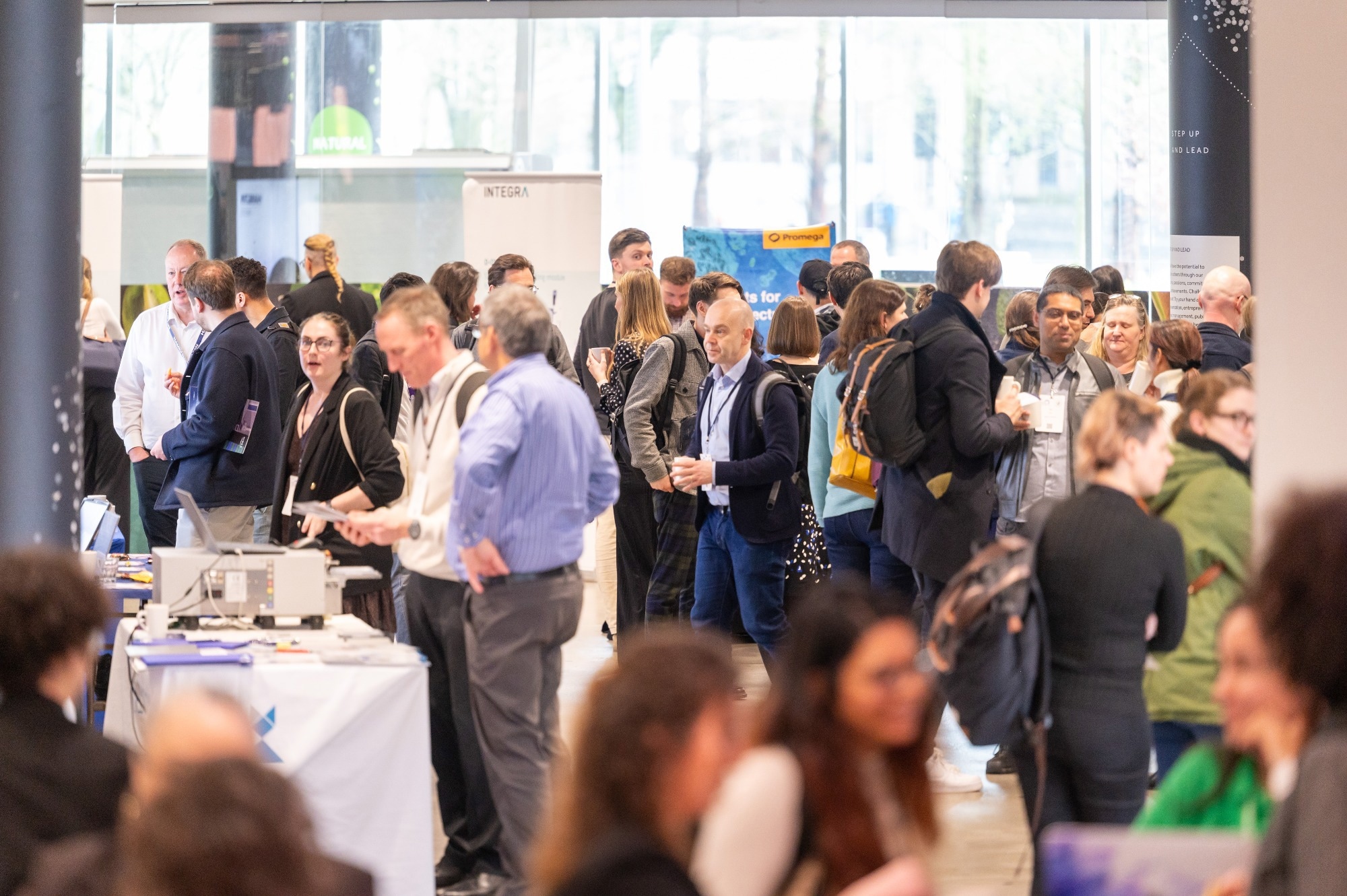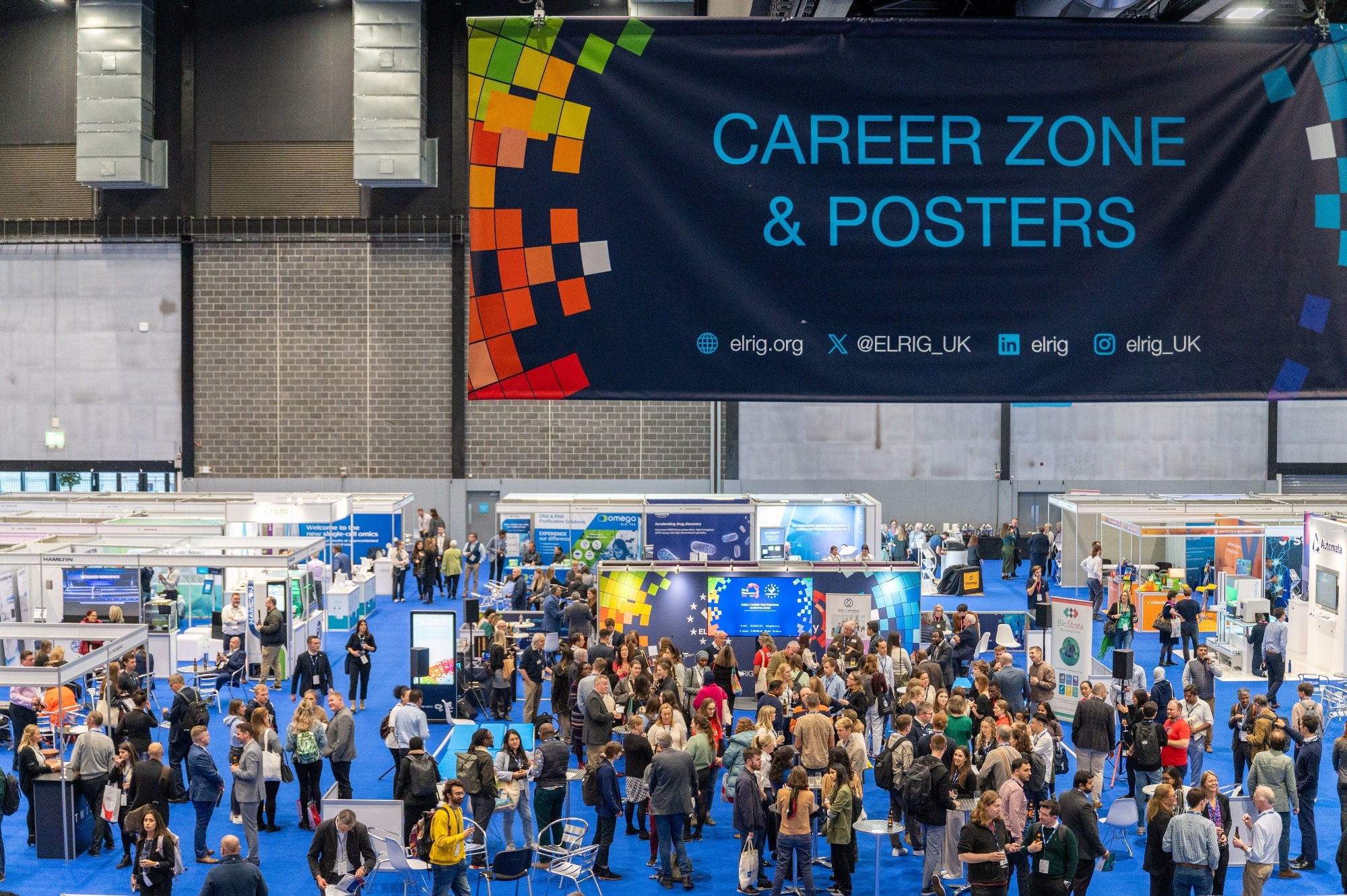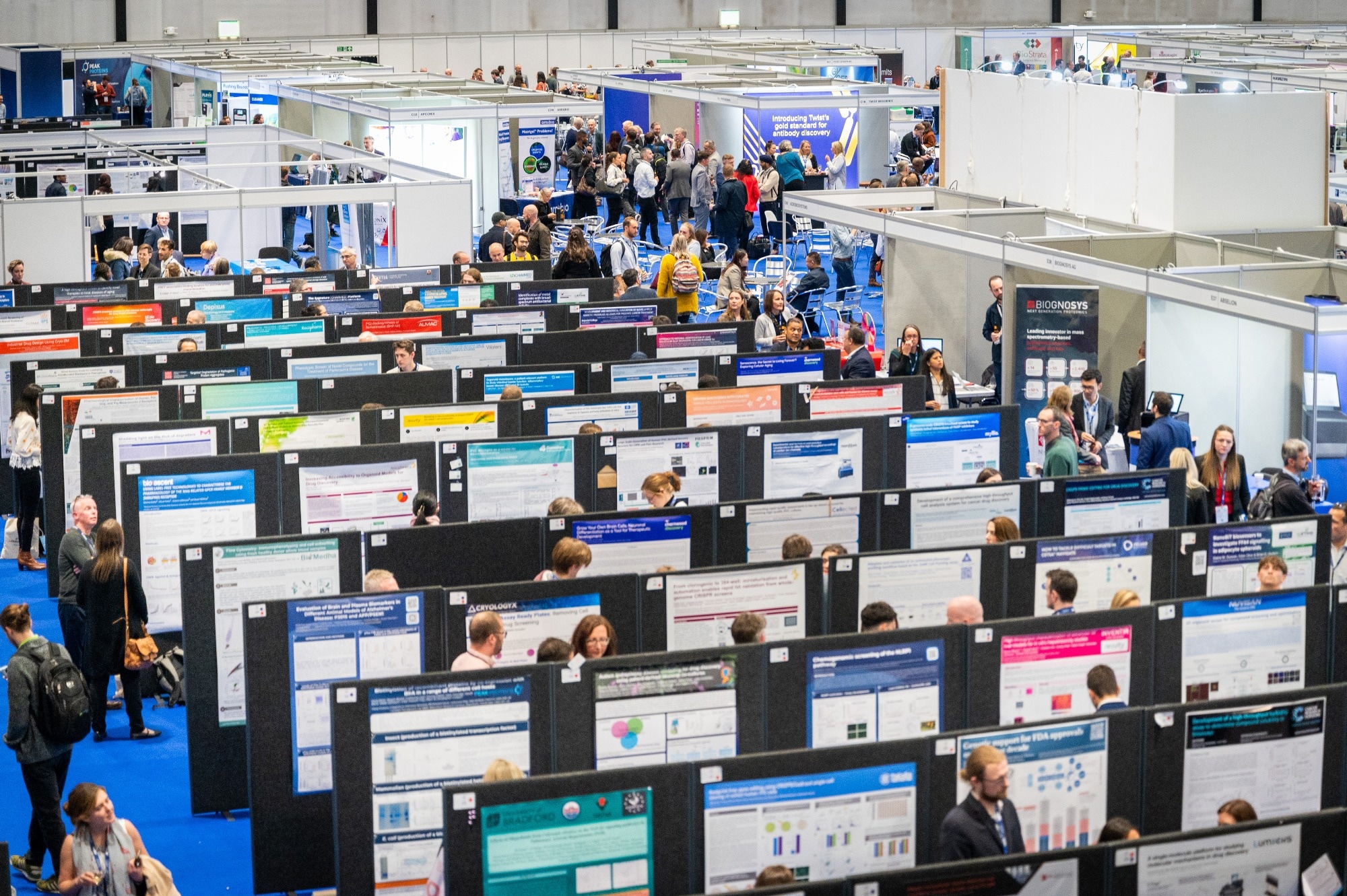In this interview, we speak with Melanie Leveridge, Vice President of Discovery Biology at AstraZeneca and Chair of the Board for ELRIG UK, to discuss her extensive career in the pharmaceutical industry, her role in fostering scientific innovation, and her vision for ELRIG's future.
Please could you introduce yourself and give me a brief overview of your professional background?
My name is Melanie Leveridge, and I'm the chair of the board of ELRIG UK. In my day job, I'm Vice President of Discovery Biology at AstraZeneca based in Cambridge. I've worked in the pharmaceutical industry for around 20 years, leading teams in early discovery, supporting assay development, screening and compound profiling, mechanistic biology, and sample management. I've been involved with ELRIG for as long as I can remember, first as a speaker at events or session chair, then on various committees and as a board member since 2017, and most recently, chair of the board since 2020.
How has your extensive career background influenced your role as chair at ELRIG?
It's very much a two-way street. The work I do in my day job obviously informs us of the scientific topics that we want to showcase at ELRIG. We need to make sure that the science and technology that we showcase are really relevant to scientists in drug discovery. The work with ELRIG really helps to build networks, which helps with the day job and helps me understand what kind of latest science is out there that I can then bring back to the day job as well. ELRIG also helps to foster partnerships between industry and academia, as well as with our technology and reagents suppliers, all of which help to advance our science.
Drug Discovery 2024: In Conversation with ELRIG
ELRIG plays a pivotal role in the scientific community by fostering collaboration and innovation. Can you discuss any specific initiatives or programs that have been implemented to enhance these aspects within the organization?
Our innovation strategy, which is new this year, is led by our innovation work group, chaired by my fellow board members Del Trezise and Sarah Lupton in the ELRIG team. They have put together a strategy to make ELRIG events accessible to new start-ups and companies with breaking innovation, but those who may not have reached a scale yet can have a full booth for the meeting or large talks. There will be a dedicated exhibition space for these companies at our Drug Discovery and Research and Innovation events, as well as an Innovation Award. It's really geared towards companies with less than 25 employees, so small start-ups. We really want to nurture that community, help them access scientists who can provide feedback and help embed their ideas into the industry, and give the ELRIG delegates access to their great innovations as well to help with their work, so it's a win-win.

Image Credit: ELRIG UK
In your introductory talk at Research and Innovation 2024, you spoke about the importance of early career professionals at ELRIG and said that 30% of attendees are actually those early-stage professionals. Can you talk a little bit about that and just what that means to ELRIG to foster that community?
This is a really important community for us. Obviously, a big part of ELRIG's mission is to help people build networks, which is incredibly important when you're early on in your career, and also to nurture and educate the next generation of scientists.
Around 30% of people who come to our meetings are ECPs. We define ECPs as people who are within the first five years of their career, whether that's after their postgraduate research or bachelor's degree, whatever that is. We have a number of events and activities geared to ECPs. I think my favorite one is our Network Like a Boss event, which is like speed networking that we hold at both Drug Discovery and Research and Innovation conferences every year. It's great fun! We also have lots of dedicated ECP webinars and scientific content like flash poster talks. We have prizes geared towards ECPs, such as our ECP Impact Awards and our ECP Poster Awards. Finally, we reinvest some of our revenue into the ECP community, for example, in the form of travel bursaries, to make our events accessible to this community.
I think it's very important that we have ECPs represented on all of our committees through ELRIG so that we hear ECPs' perspectives in our planning and strategy. We have an early career professional workgroup specifically dedicated to ECP activities, but we also have ECPs embedded in all of the other work groups and on the board. That brings a really fresh perspective to all of our discussions, and they always add huge value to all of our conversations and ideas.

Image Credit: ELRIG UK
Given ELRIG's commitment to scientific education networking, how do you ensure the organization stays ahead of the curve in covering the latest technologies and methodologies in drug discovery that you've mentioned?
A lot of that is thanks to our science programming work group, led by Saleha Patel on the board and Clare Cockerham in the ELRIG team and with membership from across a diverse range of institutions and areas of expertise from our volunteer general committee. They come together every month to discuss the latest trends and ideas that they want to see. We usually work out our schedule on an 18-month horizon, so we're really thinking about what's going to be the hot topic in 18 months to two years that people want to talk about.
The way that we make sure we get all of those ideas in is to have a really diverse group of people in those work groups and as part of the ELRIG community. So we try and make sure that we've got a real breadth of contribution from different types of organizations, whether that's biotech, pharma, academia, start-ups, charities, so different perspectives and different types of roles that people serve in those organizations. By bringing those people together in the work groups and on the committees, we get all of those ideas, and hopefully, that keeps us ahead of the curve in terms of content.

Image Credit: ELRIG UK
You've been involved with ELRIG for a long time, and you recently transitioned from director of science strategy to chair. How has this transition influenced your perspective on ELRIG, particularly the non-profit management side of things?
It's been a fantastic learning opportunity for me. Essentially, ELRIG is a small business. It's not-for-profit, but it operates as a small business. Obviously, some of the budget management and so on that I do for my day job helps with that. However, actually working in big pharma is very different from working in a small, very agile, and ever-changing organization like ELRIG, so I have gained a perspective of leading a very different type of organization than in my day job.
It's fantastic to be exposed to something very different. I think that as a chair, what I really enjoy and get the opportunity to do is touch on all of the different aspects of ELRIG. So, it is not just the scientific programming but also things like our strategy around EDI, around environmental sustainability now, and thinking about the financial sustainability of the organization and what that means for a not-for-profit. It is really fun to work with the team. I partner very closely with Sanj Kumar, the CEO of ELRIG, and we collaborate very well.
Looking to the future, what are ELRIG's key strategic goals, and how do you plan to achieve them in the context of evolving scientific and technological landscapes?
We have four fundamental strategic pillars for ELRIG; the first one is and always will be our events. So the events, and face-to-face events actually, really are the core of what ELRIG does. We are looking to continue with the fantastic program events. We're actively planning for 2025 and 2026 and trying to extend the runway and plan as far ahead as we can and continue to grow our events, and in particular the flagship Drug Discovery event in the autumn, and really trying to maximize that event for the community.
Beyond the events, the other pillars that we have are EDI, equality, diversity, and inclusion. We've had a real focus on that and have developed some guiding principles for our organization. Last year, we were proactive in making sure that our contributors to the event, our speakers, and our chairs represented the broader ELRIG community. We had some disparities in previous years, so we started to capture data from each of our events, assessed that data and the team worked very hard to address the issue. And I'm really happy to say that we're moving in the right direction, but there's always a lot more to do. The other aspect that we're going to start looking at a bit more actively this year is the accessibility of our events. So whether that's physical accessibility or thinking about how we can accommodate those with neurodiversity in our events.
Our third pillar is then presence and awareness, which is really around marketing the ELRIG brand, making sure that we continue to grow our delegate base and our vendor base, and getting the word out there about ELRIG. Something that we are trying to start doing a bit more of, and we've got a focus this year and going into next year, is around how we can host more of our content online and think about our content living beyond the events because although we have amazing scientific content, it is currently very focused on events at the moment. So I think there's a lot of opportunity there.
The final pillar is around sustainability, which means the sustainability of the organization and ensuring we are financially robust and sustainable. Still, we also need to think increasingly about environmental sustainability. Again, that's a conversation in very early days. Still, we're starting to have conversations about how we understand the environmental footprint of our events, how we improve that, and how we help facilitate dialogue about sustainability and science. We can play a big role there.
The next large event is Drug Discovery in London in October. Could you talk a little bit about the event and your hopes for it? What are you most looking forward to?
Drug Discovery is our flagship event. We're hoping to get at least 2,000 delegates through the door over the two days, with around 200 vendor exhibitors in the trade show. It's at London Excel this year, so opportunities have a really big large-scale event. We will have 7 scientific and technology tracks each day, many of which are delivered in partnership with other organizations with whom we collaborate to help bring a great variety and breadth of science to our community. There will be content on biomolecular imaging, hit discovery, chemistry, translating ideas into therapies, robotics and automation, and lots more. Beyond that, we'll have lots of content for early career professionals, networking opportunities, posters, and so on! There will also be content on some of the strategic areas I've previously mentioned, such as sustainability in science and the breakthrough innovation zone, which will be back and even bigger and better at Drug Discovery.
Where can readers find more information?
About Melanie Leveridge
Melanie is an established preclinical drug discovery leader with a track record of developing and inspiring diverse, high-performing teams to deliver innovative science and technology. Melanie worked for GSK for 19 years, from 2005 to 2024, holding roles of increasing responsibility in early discovery, including as Head of Screening, Profiling, Mechanistic Biology, and Global Sample Management. In 2024, Melanie joined AstraZeneca as Vice President of Discovery Biology, a role in which she leads a global team accountable for reagent generation, assay development, and chemical biology in support of AstraZeneca’s discovery portfolio. Outside of AstraZeneca, Melanie is a Society for Lab Automation and Screening (SLAS) Fellow, and currently serves as Chair of the Board for ELRIG UK.